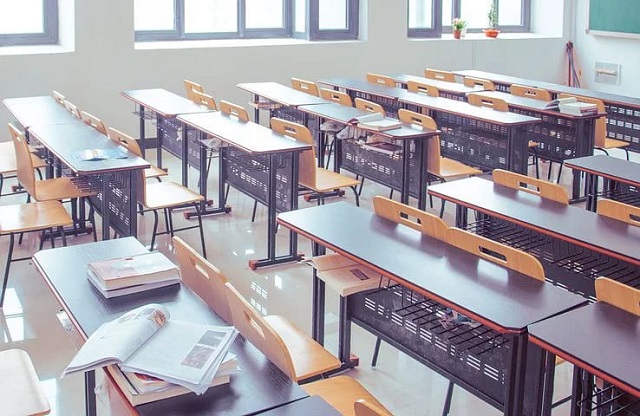2020.05.11

Why do school exams cause overdiagnosis of thyroid cancer in Fukushima?
What is the problem with thyroid cancer screening during class time in Fukushima?
After the Fukushima Daiichi Nuclear Power Plant accident, Fukushima Prefecture has been conducting thyroid cancer screening for all residents who were 18 years old or younger at the time of the accident as part of Fukushima Health Management Survey (FHMS).
Thyroid cancer screening is performed at elementary, junior high and high schools for students living in the prefecture, using part of the class time (hereinafter “
school examination”). School examination, however, has been said to be problematic by some members of the Fukushima Prefectural Oversight Committee for the survey and the Thyroid Examination Evaluation Subcommittee, as well as researchers at the Fukushima Medical University who know how it is done at schools.
The biggest concern is that it may be misunderstood to be compulsory by children who get the examination and their guardians.
School examination is carried out upon request from municipal boards of education. (https://www.pref.fukushima.lg.jp/uploaded/attachment/295103.pdf, used at 11th Thyroid Examination Evaluation Subcommittee on October 29, 2018).
The school examination was designed for the convenience of both the inspector, who tests over 300,000 children, and the children and their parents. Essentially, thyroid cancer screening is voluntary for those who wish to take. However, using class hours for thyroid cancer screening has misled children and parents to construe it is a test that must be taken, maybe because it may seem to fall in line with other health checkups or physical measurements performed regularly at school. In fact, about 90% of children are undergoing thyroid cancer screening as school examination.
It has been pointed out both in and outside of Japan that thyroid cancer screening has a risk of overdiagnosis. For screening that may have a risk, the patient must be informed of the downside and understand it well beforehand. However, a survey by Fukushima Medical University showed that “80% of guardians do not understand that there is a disadvantage to thyroid cancer screening” (https://synodos.jp/fukushima_report/22520).
In other words, in school examination, while the rate of those who undergo the thyroid cancer screening reaches 90%, as many as 80% of parents do not understand the drawback involved in the test.
Experts and on-site doctors have been raising criticisms regarding this issue:
<The 29th Prefectural Health Management Survey Committee (December 25, 2017)>
http://www.pref.fukushima.lg.jp/uploaded/attachment/262181.pdf
Toru Takano, a committee member:
“From the perspective of medical ethics, it is not appropriate and should be stopped. Because conducting screening in the middle of class makes children feel compelled but to take.”
Sanae Midorikawa, Chief of Thyroid Examination Promotion Office, Fukushima Medical School:
“School examinations are conducted during class hours. any schools bring the entire class, regardless of their will, to the examination site. Then, children, who handed out consent form, take a test.If they wish not to take, they have a choice but in fact it is not easy to say no. This may be the reason for the 90% rate.”
<The 36th “Prefectural Health Survey” Review Committee (October 7, 1980)>
https://www.pref.fukushima.lg.jp/uploaded/attachment/360819.pdf
Toshiya Inaba, a committee member:
“Especially when conducting examinations at school, it is not easy to wipe out enforceability completely.”
Shoichiro Tsugane, a committee member:
“Isn’t it necessary to reconsider some methods to implement examinations, especially for schools where things tend to become compulsory?”
On this matter, a comment posted by a researcher at Fukushima Medical University was published in
The researchers asserted, ” Residents in a disaster area fear for their lives in the acute phase, and face health risks in the recovery phase. They naturally seek help and support from their government and from professionals. Under such circumstances, residents might agree to take part in research without giving the matter enough thought.”
As an example, they refer to the thyroid cancer screening in Fukushima Prefecture, saying ” Although participants and their parents gave written consent, they were unaware of the risks of overdiagnosis, which include having unnecessary surgery to remove small, slow-growing tumors.”
Basically, thyroid cancer screening in Fukushima Prefecture is implemented only after those who agree to take it and submit the consent form that was sent to them. So, even though the government requests school to spare time for school examination for as many children can take the test as possible, it couldn’t be formally called “mandatory.” However, many children and their parents understand school examination “must be taken,” “should be considered natural to take,” or “it never occurs to me to say that I have no intention to take it.”
The Committee for Fukushima Health Management Survey is going to hold hearings on this issue from staff in charge at schools. It is hoped that Fukushima Prefecture and Fukushima Prefectural University of Medicine will solve this problem in near future.




